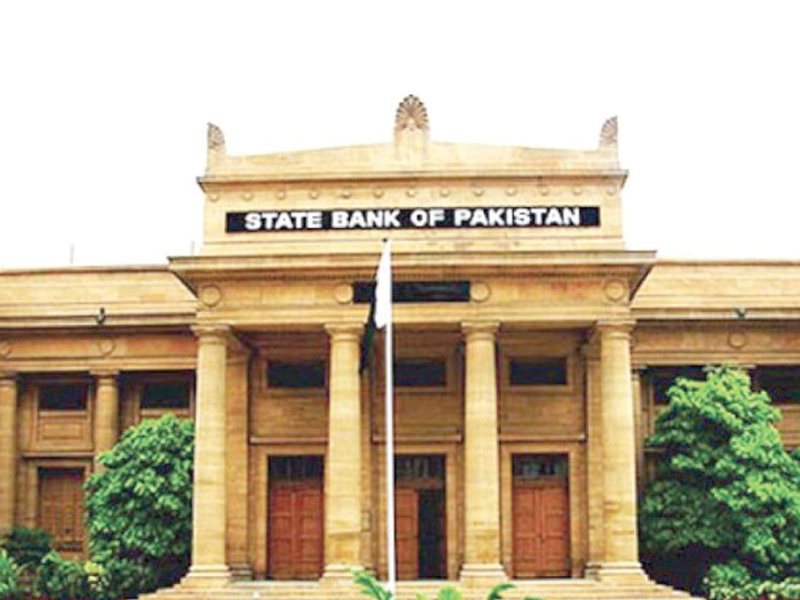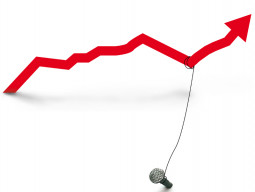
The State Bank of Pakistan is expected to maintain the status quo in its upcoming monetary policy announcement by keeping the interest rate unchanged at 9.5%, banking sector analysts say.
Speaking to The Express Tribune, Foundation Securities analyst Syed Asad Ahmed said while he expects the SBP to maintain the policy rate in its next review due in June, the central bank will likely take it back to double digits during the next fiscal year.
The policy rate is the interest rate at which the central bank lends money to commercial banks from its discount window. While the central bank uses it to control money supply in the economy, a change in the interest rate can have a significant impact on banks’ profitability.
“Inflation is expected to rise in the next fiscal year. I believe the monetary policy rate will gradually be increased in 2013-14, as inflation goes up,” Ahmed said.
The SBP has reduced the interest rate by 450 basis points in the past about two years mainly due to a declining inflation rate reflected in the Consumer Price Index. This has led to a considerable decrease in spreads of commercial banks – which is the difference between interest earned on advances and interest paid on deposits – eventually hurting their bottom lines.
Bank spreads dropped by five basis points month-on-month in April to 6.2% after showing a slight rise in the previous month, according to a research note of Foundation Securities.
Lending rates declined 156bps year-on-year to 11.4%. On the other hand, deposit costs decreased 53 basis points year-on-year to 5.23%, the magnitude of the decline is less severe.

“Core margins of the banking sector are likely to face further headwinds via re-pricing risk on loan and minimum deposit rate on average balance of the savings account,” the research note said.
Umair Naseer of Global Securities also believes that the SBP is going to stick with the current policy rate. However, he said the possibility of a rate cut cannot be ruled out entirely.
“Theoretically speaking, the SBP is most likely to keep the rate unchanged. But the incoming government of PML-N, which has the reputation of being pro-business, may be inclined towards monetary easing to encourage credit off-take in the economy,” Naseer told The Express Tribune.
He foresees an uptick in the interest rate should Pakistan approach the International Monetary Fund (IMF). “International financial institutions do not favour monetary easing. Moreover, a reduction in power subsidies will lead to a hike in tariff, which will cause inflation, thus paving the way for a tighter monetary policy,” Naseer said.
Speaking to The Express Tribune, Raza Jafri of AKD Securities said he expects the SBP to keep the policy rate unchanged in its June announcement, although inflation is likely to remain below 5%. “The central bank maintained the interest rate in the last two policy decisions despite a declining rate of inflation,” he said.
Jafri believes the SBP will wait for some ‘tangible signs’ before changing the interest rate. An increase in general sales tax, weakening of the rupee, receipt of coalition support fund, Pakistan’s entry into an IMF programme and a Saudi oil facility for Pakistan are some of the factors that, he says, will determine the SBP’s future course of action in relation to the monetary policy.
As for the June announcement, however, he says the central bank is likely to keep the interest rate at 9.5%.
Published in The Express Tribune, May 28th, 2013.
Like Business on Facebook to stay informed and join in the conversation.












































COMMENTS
Comments are moderated and generally will be posted if they are on-topic and not abusive.
For more information, please see our Comments FAQ